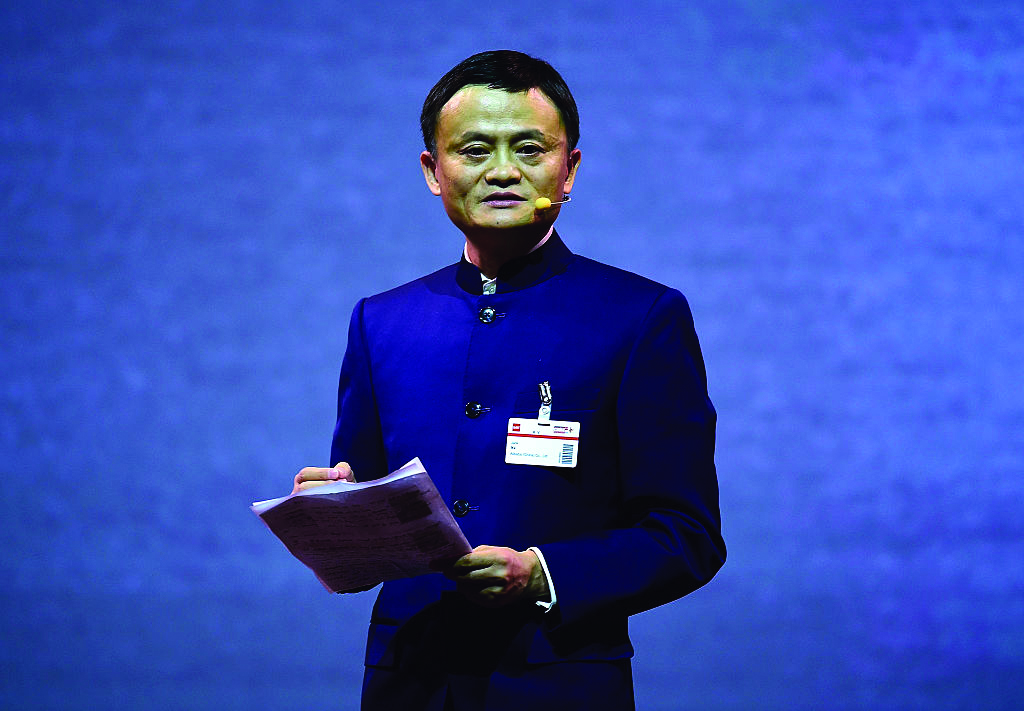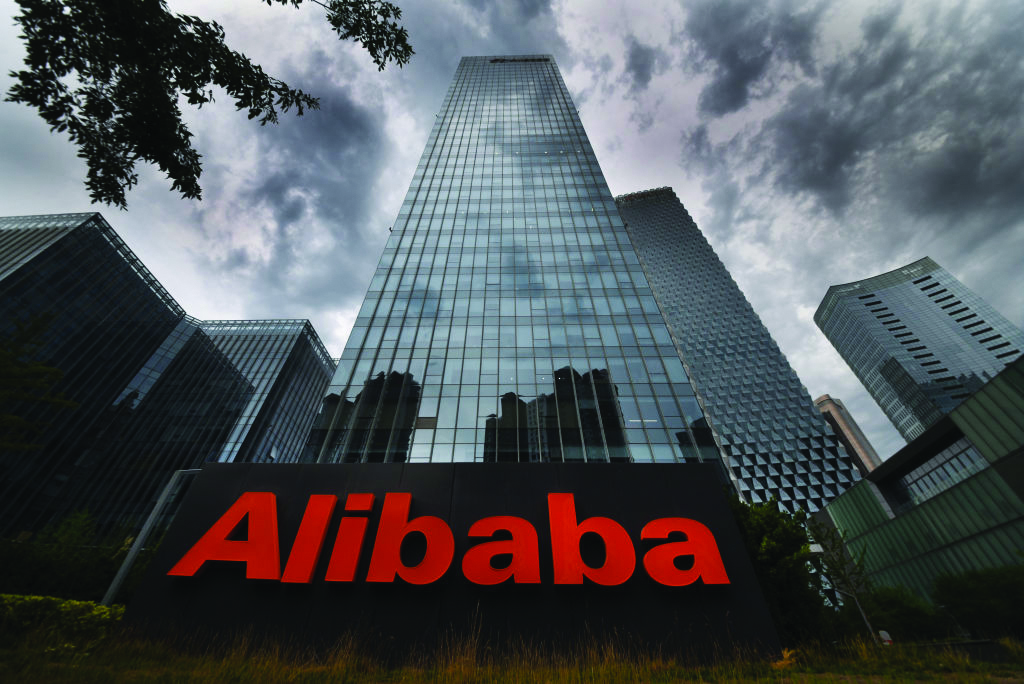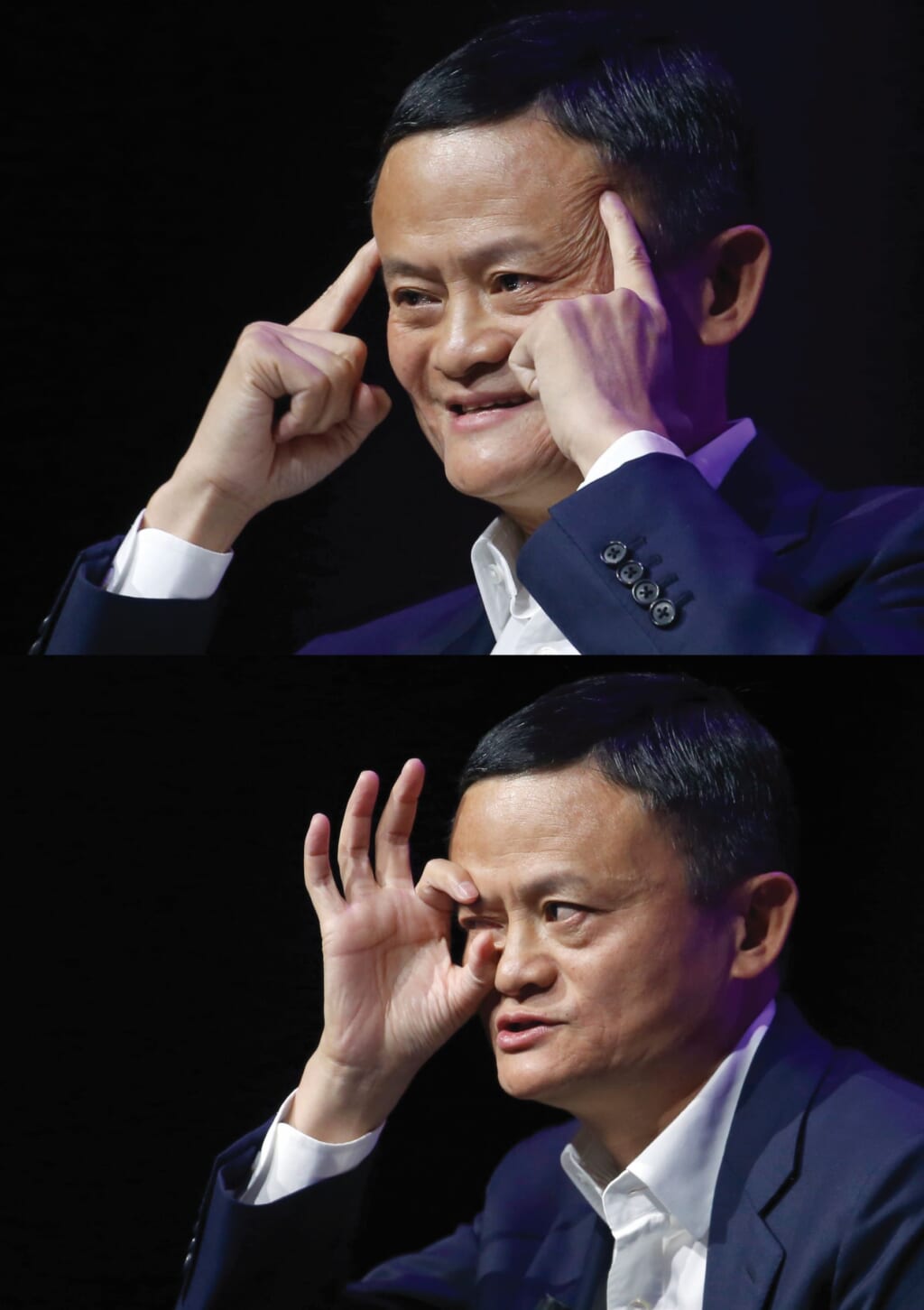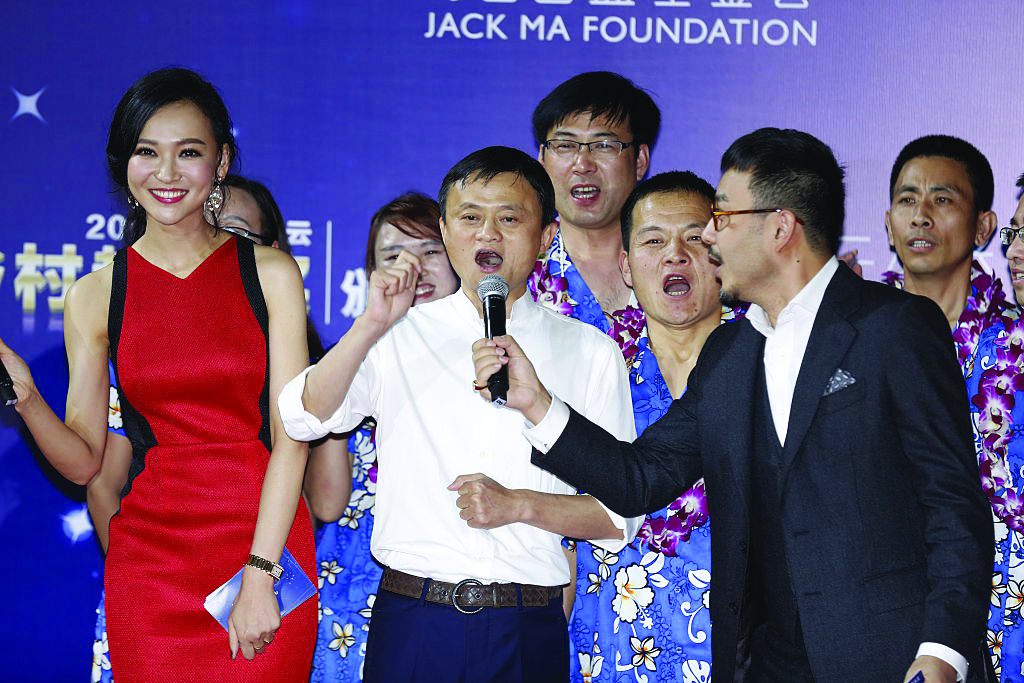How Alibaba Founder Jack Ma Built A Global Internet Empire
The multibillionaire tech titan’s journey from extreme poverty is an inspiring rags-to-riches story.

(Alexander Koerner/Getty Images)
Americans are well-versed in the “rags to riches” archetype, starting with the works of Horatio Alger, ingrained in historical narratives and continuing to today’s ideal of achieving the American dream. But perhaps no one better exemplifies the journey from extreme poverty to extreme wealth better than Jack Ma, multibillionaire cofounder of Alibaba Group, one of the richest and most impactful entrepreneur-philanthropists in China and the world.
Born Ma Yun on September 10th, 1964 in Hangzhou, China, Ma’s parents were reportedly folk musicians and storytellers. Although Ma and his family were impoverished, the boy’s work ethic and love of learning would eventually provide a financial escape for both him and those around him.
He began by teaching himself English, for years riding his bicycle 17 miles to the international Hangzhou Hotel to barter his services as a tour guide to foreign visitors he met in exchange for English lessons. He soon adopted the name Jack, which was given to him by a Western tourist.
As Ma told Inc., “Those years deeply changed me. I started to become more globalized than most Chinese. What I learned from my teachers and books was different from what the foreign visitors told us.”
One of those visiting groups of foreigners was an Australian family with whom Ma became pen pals in 1979, and who would later invite Ma to visit them in 1985, expanding his horizons and exposure to the West. But in China, the young Ma ran into obstacles seemingly every step of the way. He failed the infamous Chinese entrance exams twice before scoring high enough to be accepted to the Hangzhou Teachers College, considered the city’s worst university according to Ma.

(Su Weizhong/CG via Getty Images)
Despite high achievement in university and a subsequent job as an English teacher, the curious young man desired more and was determined to go into business for himself. This would present a challenge for the future billionaire who found himself rejected by just about every employment opportunity he chased, from a hotel to KFC to the city’s police force.
Focused on his strong English language skills, he eventually began a translation company with moderate success. But the technologically-ignorant Ma was about to be given a push into the industry that would come to provide him with his immense wealth and China with one of the world’s most valuable internet companies.
On a visit to Seattle, a friend showed him the internet for the first time, still in its nascent stages. When Ma searched the web, he found countless listings for beer from around the world, German, American, and others. But there were no listings for beer from China.
More impactful, in 1995, as Ma tells is, he went to Los Angeles to help settle a business dispute with an American businessman—which almost turned violent but which ended by Ma agreeing to go into business with him on an internet company in China. Beyond the disturbing nature of this experience, is the ironic reality that Ma knew little about technology and nothing about the internet. Shaken, Ma left Los Angeles and claims the experience still affects him.
Sensing an opportunity however, Ma returned to his homeland and began a small listing service for Chinese businesses. “The day we got connected to the Web, I invited friends and TV people over to my house.” Thanks to a snail-paced dial-up connection they “waited three-and-a-half hours and got half a page,” he recalled to The New York Times in 2005. “We drank, watched TV and played cards, waiting. But I was so proud. I proved the internet existed.” Introducing Chinese friends to the internet was only a precursor to Ma’s introduction of the world wide web to the larger Chinese population in later years.

(Chesnot/Getty Images)
This small success led to his being recruited to work in the public sector, assisting a government agency helping to enable and expand Chinese e-commerce and internet entrepreneurship. Now, armed with both knowledge from abroad about the potential of the internet commercially, and with a solid idea of how a Chinese firm could navigate these same industries within the complex Chinese economy, Ma was ready to launch the company of his dreams.
So it was, working from a small apartment in 1999, that Ma initially sought investments from 17 friends and colleagues. The entity they created was called Alibaba, after the character in The Thousand and One Nights, and it would grow to be worth more than $800 billion at one point. The name, according to Ma, came from a desire to find something that was easy to spell and pronounce, and had meaning around the globe.
This investment got the company started, but it was follow-up investments by Goldman Sachs and a group of venture capital firms ($5 million), and SoftBank Group Corp. ($20 million), that allowed Alibaba to grow into the business-to-business behemoth it is today. Under its corporate umbrella, Alibaba Group has a diverse range of businesses, albeit ones that typically dominate their specific industry.
There’s Alibaba.com (B2B) that helps manufacturers sell to international and domestic clients; Taobao (C2C) which so dominated the marketplace that competitor eBay China was forced to abandon its efforts to get a foothold in the Chinese market; and Tmall (B2C) which enables businesses to sell their products directly to online customers.
It’s as if Amazon, eBay, PayPal, Google and Shopify were all started by the same person under the same corporate ownership. Frankly, it’s a scale almost that’s impossible to comprehend. Today Alibaba is still growing and is focused on introducing new companies and expanding revenue streams in areas such as electronic payments, cloud computing, smarter search engines for shopping, and advances in artificial intelligence.

(VCG/CG via Getty Images)
Of course, Ma’s entrepreneurial timing has been impeccable. Even Ma admits that he couldn’t have timed his efforts any better, as he was able to conquer both the “Wild West” of the early internet and the complicated political landscape in a China that was slowly opening up its markets to the world in new capitalistic ways. His country had an untouched domestic market that would soon have disposable income and a burgeoning middle class, and Ma would take full advantage.
Ma later joked about this with Charlie Rose in a 2011 interview, explaining “My father said, If you were born 30 years… earlier you would probably be in prison because the ideas you [have] are so dangerous.” Some entrepreneurs made billions by capitalizing on the early internet while others made their fortunes in the early capitalist stages of China in the late 20th century. Jack Ma’s genius was succeeding in both. Despite having little knowledge of computers, technology or the internet, Ma had succeeded in building one of the most successful tech companies on the planet.
Jack Ma no longer serves as executive chairman of Alibaba and its related entities, having resigned from the position in 2019, Alibaba’s 20th anniversary, saying in a 2018 letter to shareholders that, “I will devote more time and effort to education, philanthropy and the environment. While I will not allow myself to sit idle, this time, I will be able to spend time on choosing interesting and meaningful causes that I can be passionate about.”
It was a promise he first made to himself more than a decade earlier, knowing that there was more for him to do beyond the corporate world. Worth an estimated $39.8 billion, Ma is now in the company of other tech moguls like Bill Gates, a role model of Ma’s, in the desire to share his wealth through massive philanthropic programs.
Alibaba has been philanthropic for years, ever since 2006 when the company launched a program that has helped more than 20,000 underprivileged mothers in China. The company solidified this commitment with the Alibaba Foundation by setting aside 0.3% of its annual revenues for philanthropic purposes, which means hundreds of millions of dollars being spent on important causes.

(Jie Zhao/Corbis via Getty Images)
But it is the Jack Ma Foundation, founded in 2014, which had an endowment of about $4.6 billion (in Alibaba shares) in 2019, that provides the most potential for a positive global impact. By the end of 2019 it had distributed more than $300 million for charitable causes ranging from ecological ones like protecting wetlands in Hangzhou to encouraging the development of women’s sports in the country. The foundation itself focuses on entrepreneurship, education, women’s leadership, medical support and environmental protection. It’s not surprising Ma has pushed for assistance for women, as his company has long had a large percentage of both female executives and employees, ignoring traditional gender norms.
But Ma has no interest in running a loosely-organized charity. He plans on conducting it with the same efficiency and methods that made him a billionaire in the first place. “Philanthropy is also about efficiency,” Ma told Forbes Asia after his retirement. “If you can spend $3, why spend $5? If you can finish it in two hours, why do four hours? The way I learned how to run a company, that is the way I learned how to run a philanthropic organization.”
Education is a major part of his efforts, including more than $75 million to improve education quality in rural and poor areas of China, training countless teachers and administrators. But he has already set his sights on philanthropic opportunities outside China’s borders, insisting that while domestic efforts are important to him, they also serve as a way of testing different approaches towards educational and environmental philanthropy, and the best way to maximize the impact of each dollar donated. Ma has already helped causes in Australia, Africa and the Middle East, but he’s only getting started in his quest for maximum global impact.
While Ma claims China has a culture of charity, he also believes it lacks a similar culture of philanthropy due to the lack of concentrated wealth in previous generations. He believes China’s current crop of business titans are still just beginning their philanthropic efforts, and as such he is providing resources and guidance to assist these future charitable efforts, while setting a public example for others to follow. In Asia, many of the newly minted über-wealthy are looking to Ma and his foundation as a guide of sorts as they begin to also set aside much of their wealth for the betterment of others.
Ma also wants to encourage the spirit of philanthropy in as many people as he can, telling a philanthropy conference in Hangzhou in 2016, “The world won’t change because you donate money, but it will change if your heart is changed. You can never save all the poor people and heal all the illness, but we can wake up the kindness inside everyone in the world.” At times Ma can be idealistic, although his wealth and altruism make these ideals possible. Even with the current semi-antagonistic relationship between global superpowers, Ma serves as a beacon of hope and optimism.

(Visual China Group via Getty Images)
“People in China and America, one thing we have in common is the heart of love and respect,” Ma has preached. “This is a common language we have. The first tech revolution caused WWI. The second caused WWII. Now we are a third revolution; what’s gonna happen? It should be a war against poverty, disease et cetera.
